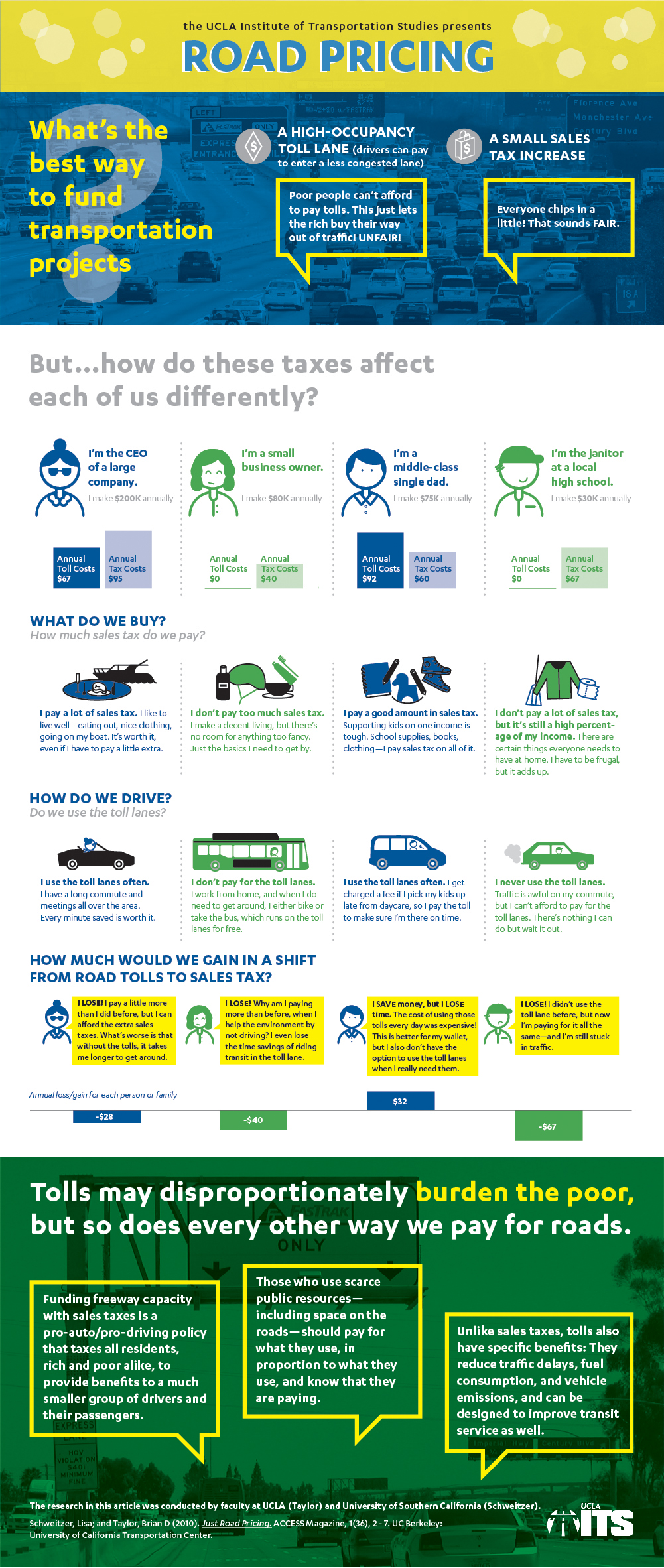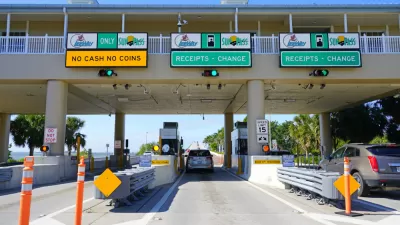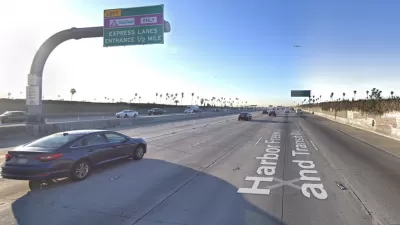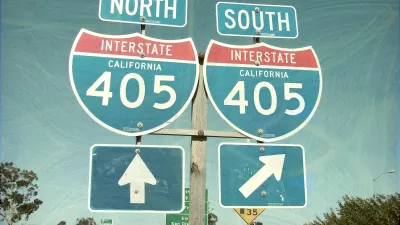Herbie Huff of the UCLA's Lewis Center and Institute of Transportation Studies pens a well-reasoned opinion for the Los Angeles Times as to why a market-based strategy to manage demand is the best approach to traffic congestion in Los Angeles.
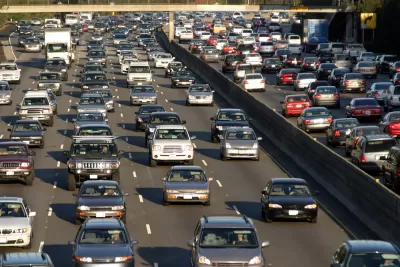
Traffic in Los Angeles is "so bad that billionaire futurist Elon Musk recently promised to 'just start digging' tunnels underneath L.A., writes Herbie Huff, research associate at UCLA's Lewis Center for Regional Policy Studies and Institute for Transportation Studies. "With enough layers of tunnels, says Musk, any amount of cars could be provided for."
With all due respect to Mr. Musk, this plan encapsulates everything that’s wrong with how we think about traffic. Instead of building our way out of the problem, there is a proven solution to fighting traffic, one that’s much easier, more effective and less costly than our current approach. It’s putting a price on the use of our roads.
Huff points to all the other commodities that are not only priced, but whose prices increase with the level of demand, and the chaos that would ensue if they didn't use pricing to manage demand.
And yet we miss that this very same, simple system of pricing could solve our congestion problem. Roads are the only piece of infrastructure we allow to consistently fail due to overuse.
Well, let's not forget parking.
Huff then addresses the application of dynamic tolling on High Occupancy Toll (HOT) lanes, including the Metro ExpressLanes on the 110 and the 10 freeways in L.A.
Here in Los Angeles, average speeds on the 10 and 110 are 45 mph in the general purpose lanes and 65 mph in the HOT lanes. And the free flowing lanes are benefiting transit riders, too. Transit usage jumped 10% following the opening of the 10 and 110 ExpressLanes. Despite a poor, under-publicized rollout by Metro, these facilities have created far more traffic relief than the 405 widening at a fraction of the cost.
In response to the Lexus Lane (equity) argument against HOT lanes, Huff writes that it "ignores the fact that working Americans often suffer the most severely from the impacts of poor mobility." For example, the fee for arriving late at day care to pick up one's child doesn't vary with the income of the parent.
In fact, experience with dynamic tolling in the United States has shown that people of all income levels use these lanes. (See examples from Washington and Florida.) This objection also ignores just how inequitable and dysfunctional our current system is. (See ITS infographic below.)
This image can be reused and shared under the Creative Commons 4.0 License.
ACCESS 36, Spring 2010, and ACCESS 50, Special Issue: Transportation Finance.
Hat tip to Len Conly.

Alabama: Trump Terminates Settlements for Black Communities Harmed By Raw Sewage
Trump deemed the landmark civil rights agreement “illegal DEI and environmental justice policy.”

Study: Maui’s Plan to Convert Vacation Rentals to Long-Term Housing Could Cause Nearly $1 Billion Economic Loss
The plan would reduce visitor accommodation by 25% resulting in 1,900 jobs lost.

Planetizen Federal Action Tracker
A weekly monitor of how Trump’s orders and actions are impacting planners and planning in America.

Wind Energy on the Rise Despite Federal Policy Reversal
The Trump administration is revoking federal support for renewable energy, but demand for new projects continues unabated.

Passengers Flock to Caltrain After Electrification
The new electric trains are running faster and more reliably, leading to strong ridership growth on the Bay Area rail system.

Texas Churches Rally Behind ‘Yes in God’s Back Yard’ Legislation
Religious leaders want the state to reduce zoning regulations to streamline leasing church-owned land to housing developers.
Urban Design for Planners 1: Software Tools
This six-course series explores essential urban design concepts using open source software and equips planners with the tools they need to participate fully in the urban design process.
Planning for Universal Design
Learn the tools for implementing Universal Design in planning regulations.
Caltrans
Smith Gee Studio
Institute for Housing and Urban Development Studies (IHS)
City of Grandview
Harvard GSD Executive Education
Toledo-Lucas County Plan Commissions
Salt Lake City
NYU Wagner Graduate School of Public Service

























